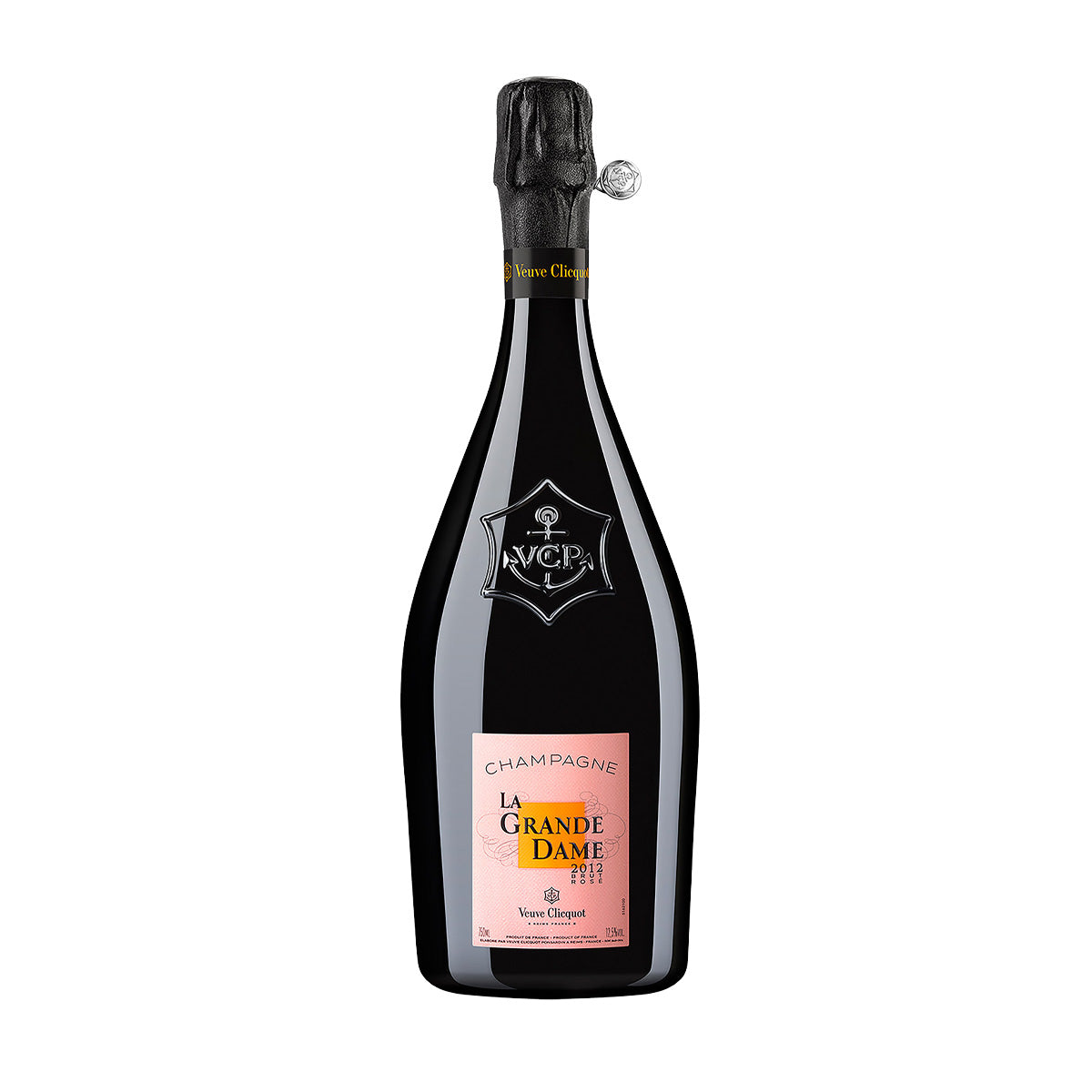Veuve Clicquot
Veuve Clicquot La Grande Dame Rosé 2012
Veuve Clicquot La Grande Dame Rosé 2012
Founded in 1772, Veuve Clicquot has lived by it's motto, "only one quality, the finest." Created first in 1988 and launched in 1995 La Grande Dame Rose is a tribute to Madame Clicquot and a reflection of the House's terrior.
HOW TO ENJOY
HOW TO ENJOY

Appearce: A beautiful garnet pink colour with copper highlights
Aroma: On the nose we discover very floral notes (rose and violet) which evolve towards notes of red fruits an spices
Taste: The mouth offers a fruity and floral bouquet, with a powerful attack then more complex secondary aromas (brioche, notes of roasting and coffee) It is lively, sunny wine marked by a good length and which ends with light smoky notes.
Choose rich dishes and subtle pinks. Begin with a rich, meaty seafood dish – we think lobster or langoustine would be the perfect shade for this rosé. Embrace the champagne’s fruitiness with succulent pink meats. Veal or duck would pair beautifully – cooked just the way you like.
Reims, Champagne France. Veuve Clicquot champagne has always been a creative act, requiring unique expertise grounded in a love for Pinot Noir and the art of aging. From harvest to shipment, Veuve Clicquot is inspired by the House’s longstanding motto, “only one quality, the finest.” Madame Clicquot’s legacy shines on throughout the House with passion and optimism.
WORTH A TRY
EXCEPTIONALLY CRAFTED CHAMPAGNES
Cognac tradition. Craftmanship. Creativity. Centuries of expertise. Discover the full Hennessy Cognac range and enjoy a unique cognac tasting experience. Could Richard Hennessy and his eldest son James possibly have imagined at the end of the eighteenth century that, one day, their cognac would have travelled the world over, ignoring borders and challenging traditions?


